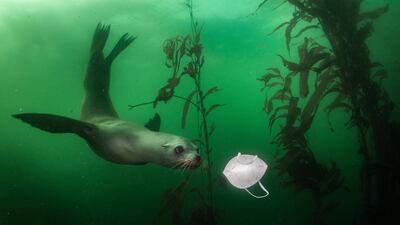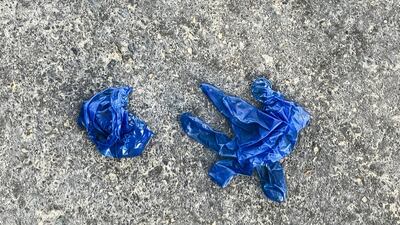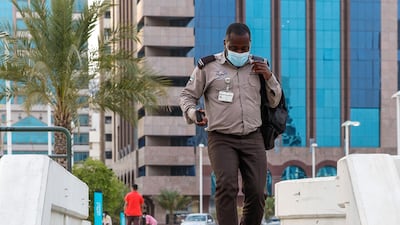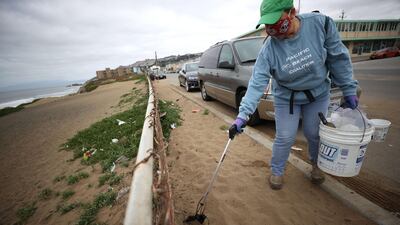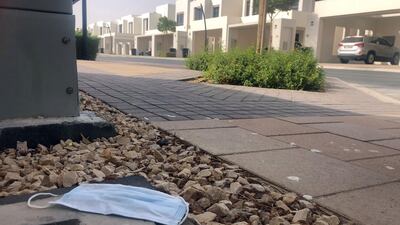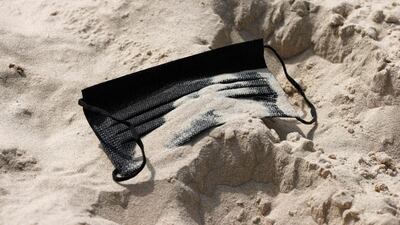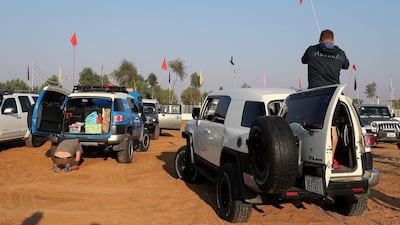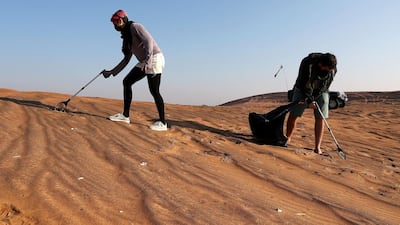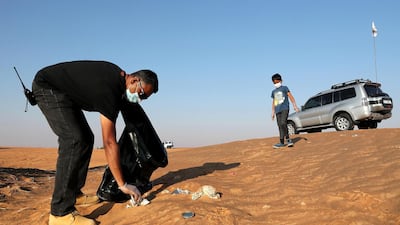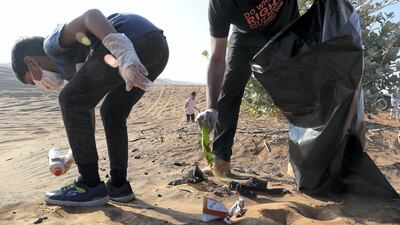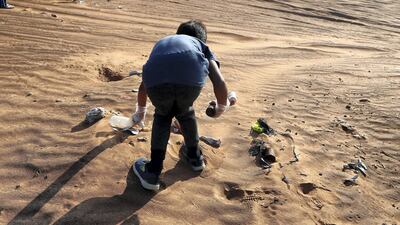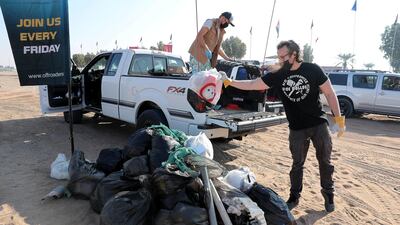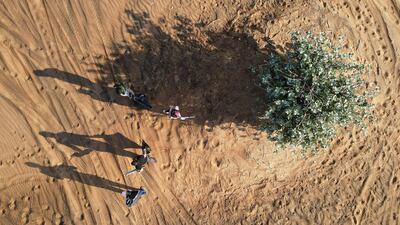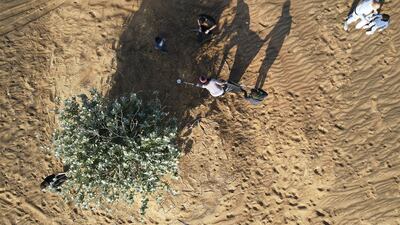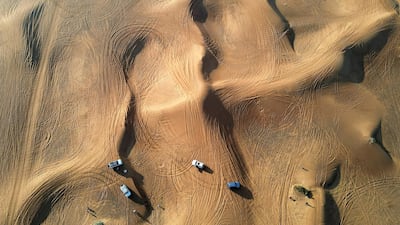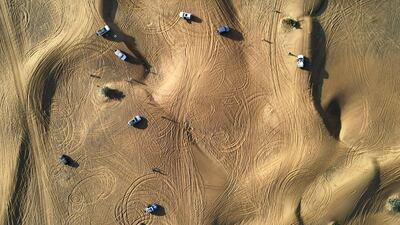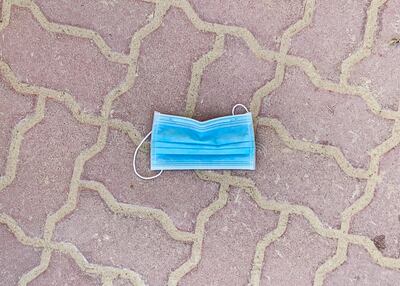Environmentalists have sounded the alarm over the grave damage discarded face masks and gloves are causing to the planet.
More than a year on from the start of the pandemic, they are ending up on our streets, in the oceans and at landfills imperiling animals and marine life.
Experts also called for people to dispose of these items responsibly and opt for reusable masks if possible.
“This is a global issue and one we have noticed here in Abu Dhabi too," an official from the Environment Agency – Abu Dhabi said.
"[There has been] an observed increase in the amount of personal protective equipment (PPE) associated with the pandemic entering the environment – mainly masks and gloves.
“We ask people to dispose of items responsibly so that it does not enter the environment where it could be consumed by some of the wonderful biodiversity we have here in the UAE.
“If anyone comes across an animal, including birds, entangled in a facemask, they can report it to EAD on 800 555.
“[We need to use this] as an opportunity to educate public that improperly disposed face masks could be hazardous to wildlife.”
In a recent global study published in Environmental Advances, surgical masks were submitted to an artificial ageing experiment and exposed to seawater.
Findings showed that a single face mask could release as many as 173,000 microfibers a day into the seas and oceans.
“Disposable face masks have turned from a specific tool designed for healthcare professionals to a generalised measure to mitigate the propagation of the virus," researchers said.
In 2020, tens of billions of face masks were produced worldwide and improper disposal by the general public led to a sharp rise in waste.
Alarmingly, about 1.5 billion masks entered oceans last year, which amounted to an average of 5,460 metric tonnes of plastic pollution, according to Hong Kong's environmental group, OceanAsia. Today, PPE lays strewn on streets, in forests and in the UAE's deserts too.
During a clean-up campaign in Sharjah in January, Pavel Kashirskiy, an off-road marshal at the Offroaders driving club, was shocked to discover gloves and face masks far out in the desert.
He told The National that face masks had become a regular find on their weekly clean-up outings.
Habiba Al Marashi, chairwoman of Emirates Environmental Group, a local NGO, said discarded PPE items had a massive impact on the natural environment. "All of these items must be properly discarded in a closed dustbin," said Ms Al Marashi.
"Unfortunately, due to its light weight, it tends to fly around in the wind. If a dustbin is not closed, it can tend to take flight and spread around.
“These plastics do end up in the ocean and, in the case of the UAE, the desert.
"This is not good for the wildlife, which often feed on tiny plastic."
In the extreme temperatures in the UAE, Ms Al Marashi said, the plastics can quickly dry, become brittle and disintegrate into smaller pieces and micro plastics within days.
Ms Al Marashi, through her role with the group, has been trying to educate the public on the dangers of dumping such items incorrectly.
Over the past few months during its clean-up campaigns, members and volunteers from Emirates Environmental Group have regularly come across PPE.
“Often these items we find in the desert are discarded during picnics and family outings. People do tend to carelessly discard a variety of manmade objects in the desert, which never work well in nature and on the wildlife,” Ms Al Marashi said.
She urged people to opt for reusable cotton masks instead of disposable ones.
